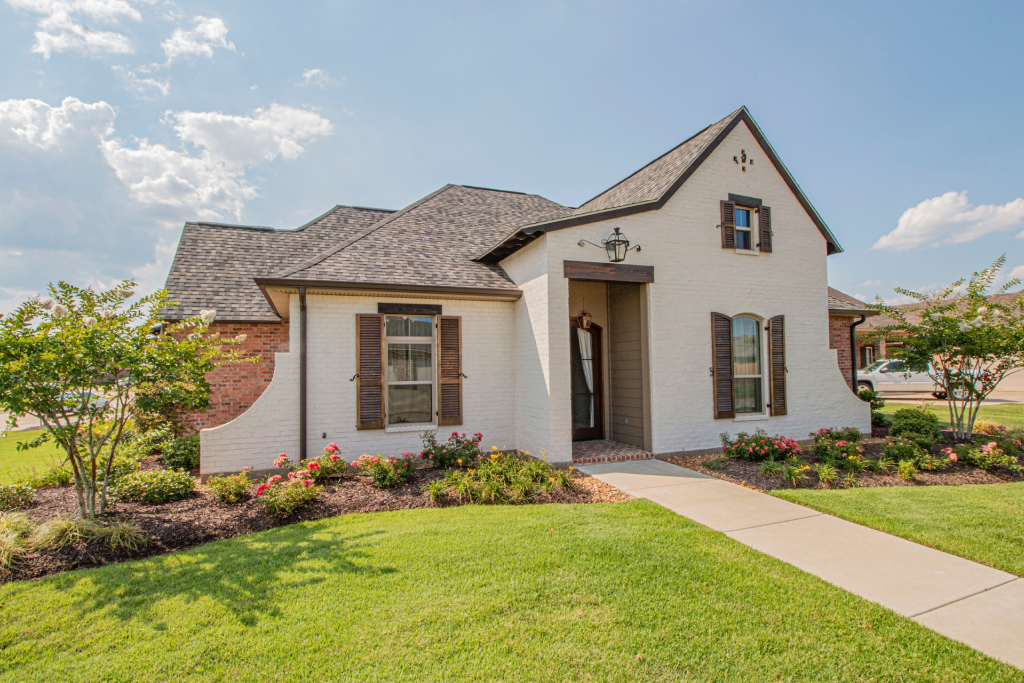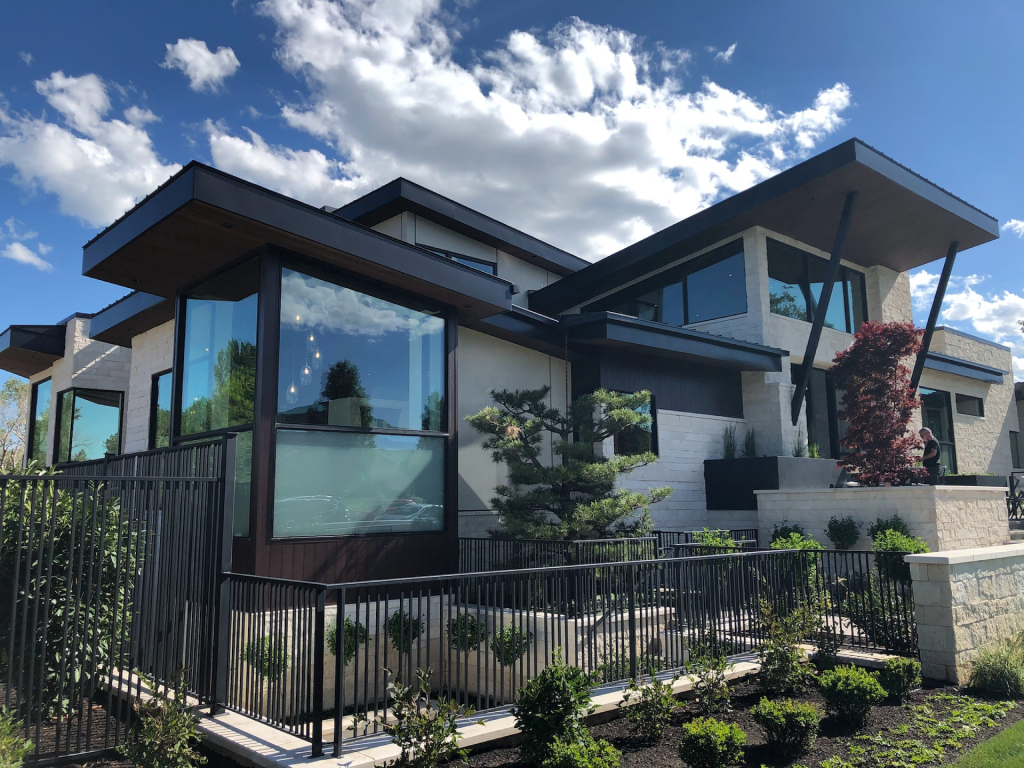Credit: Image by inboundREM | Source
Famous structures like The Gateway Arch and mouth-watering meals, especially flavorful barbeques, are just a few of Missouri’s many claims to fame.
There are a lot of gorgeous state parks in the state where you can go hiking, camping, or have a picnic. For these and many other reasons, Missouri is perfect for everyone planning to relocate to the state, from young families to thriving professionals to retirees!
However, one of the first few things we might have in our minds when we consider moving to a new place, or in this case, Missouri, is always, “How much are closing costs in Missouri?”
Missouri closing fees are not standardized and might vary based on the purchase price and location of the property. It would help if you talked to a real estate agent or mortgage lender in your area to acquire a personalized estimate of closing expenses.
It would be best to account for additional costs like moving services and utility setup fees when planning your relocation to Missouri.
But worry not! In this article, we will go over the numerous variables you need to know when it comes to closing costs in Missouri so that you can budget your finances effectively and avoid future shortcomings!
Title Search and Insurance Fees

Photo by Dimitri Karastelev on Unsplash
Title insurance is an indemnity protecting buyers and lenders against financial loss due to property title flaws.
The most prevalent is the lender’s title insurance that the borrower buys to protect the lender. Owner’s title insurance, which covers the buyer’s equity, is often paid for by the seller.
Title insurance is included in the closing fees in Missouri and typically costs between 0.5 and 1.0 percent of the home’s purchase price.
After that, a comprehensive policy summary will be sent to you. Title expenses such as title settlement, escrow, land survey, and more are often included in a policy’s quotation.
Homeowners’ title insurance is typically paid for by the seller in Missouri real estate transactions. This, however, is negotiable. In Missouri, the mortgage broker requires the buyer to obtain a lender’s title insurance to safeguard their interests.
Appraisal Fees

Photo by Daniel McCullough on Unsplash
Appraisal costs are quality control in which a business incurs expenses to identify issues with a product before it is sent to consumers.
A real estate appraisal fee is money paid to a third party in exchange for an expert opinion on a property’s value. It is a payment for the service of determining the property’s worth.
Lenders need to know the value of a house, and an appraisal provides this information in the form of an objective valuation.
Traditional, full-scale house assessments in Missouri typically cost between $275 and $350.
Who pays for the assessment is determined by who requests it. In Missouri, the buyer is responsible for paying for the house evaluation if the mortgage lender requires it.
If needed before the sale, the cost of an appraisal will fall on the seller. The home buyer and seller may agree on who pays these costs, but that is not always the case.
Prepaid Expenses

Photo by Ronnie George on Unsplash
At closing, you will make payments on various lines of your new mortgage called “prepaid.” Simply put, they are termed “prepaid” expenses since they are paid before they are due.
These are set aside in an escrow account so that you can cover your financial obligations when they come due. Some of the common prepaid expenses in a real estate closing transaction are the following:
- Homeowners’ Insurance
- Property Taxes
- Mortgage Interest
The real estate contract and local traditions affect the precise prepaid expenses and how they are divided between the buyer and seller.
The buyer may cover these expenses by making direct payments to the appropriate parties, or the buyer may get a credit from the seller, lowering the seller’s net revenues.
Prepaid expenses are often split between the buyer and seller according to terms negotiated in a purchase agreement.
To fully grasp their respective financial duties regarding prepaid costs in a real estate transaction, buyers and sellers should thoroughly analyze the contract’s provisions and consult their real estate agents or legal counsel.
Attorney Fees

Photo by LinkedIn Sales Solutions on Unsplash
Real estate attorney fees are the money spent on employing an attorney to handle the legal aspects of buying, selling, or refinancing a home. Depending on the nature of the transaction, these costs may be paid by either the buyer or the seller.
The costs of hiring a real estate lawyer and whether or not you’ll need one vary widely depending on where you live. It is usual practice in certain areas to include an attorney in a real estate transaction, while in others, it is less so, and the parties may instead depend on real estate agents and title firms.
The purchase agreement may be a place for the parties to discuss and spell out who is responsible for the costs associated with legal representation.
Buyers and sellers can share legal counsel costs or hire their attorneys at their own expense.
The parties to a real estate transaction should negotiate the parameters of the attorney’s fees and establish a mutual understanding of the attorney’s role in the trade.
Recording and Transfer Fees

Photo by Wesley Tingey on Unsplash
You must pay a recording fee to the relevant government body when buying or selling property. Documents such as affidavits, leases, mortgages, corner certificates, UCC filings, title modifications, and deeds all include associated fees.
The average recording charge in Missouri is $30, or 0.01% of the total closing costs.
The buyer often covers the recording charge. However, the seller has the option of paying the necessary recording expenses.
You may ask the seller for a discount on this price as a part of a concession if you’re serious about going that path. If the seller is willing to pay for it, you can put your mind at ease, knowing that this expense won’t come out of your pocket.
Inspection Cost

Photo by Naomi Ellsworth on Unsplash
A house inspection is the price paid to a third party to assess a residence’s safety and overall condition before its sale.
A professional home inspector will check for fire and safety dangers in the structure’s electrical, plumbing, gas, and heating/cooling systems. The house inspector may also look for signs of termites, water damage, fire damage, and other problems that might lower the property’s market value.
The typical home inspection price in Missouri is between $325 and $400. Inspection costs are relative to the property’s size and kind.
The buyer often foots the bill for a standard home inspection. The purchaser must have this data to do their due diligence on the investment and proceed with the acquisition. The seller pays for the house inspection in a seller inspection.
Miscellaneous Fees
Miscellaneous fees associated with the transaction may include those for a courier, a wire transfer, or the cost of preparing documents.
The contract generally outlines these charges after careful negotiation, and the total cost varies.
As part of the sales agreement or contract, the buyer and seller often discuss and divide these costs. The parties may negotiate who is responsible for paying these incidental costs, or it may be stated explicitly in the agreement.
Tips for Minimizing Closing Costs

Photo by Ksenia Balandina on Unsplash
The closing fees on a house purchase may add up to 5% of the total purchase price, adding to the stress of navigating the real estate transaction process.
It is especially true in high-end locations, where home prices may rise, like the stunning state of Missouri.
Homebuyers should carefully consider these closing costs, which include anything from loan fees to title insurance.
For this reason, let’s go into an in-depth analysis of techniques and insights to reduce the financial burden of closing expenses and keep the dream of homeownership within reach while protecting your economic well-being.
1. Cost Comparison
Closing cost comparisons are vital to reducing the overall home purchase cost.
Various fees and expenditures, such as those for the lender, title insurance, appraisal, etc., are also included here. Closing expenses may be reduced by rigorous comparison shopping for service providers, negotiation with lenders, and thoroughly examining the loan estimate.
Buyers may save a significant amount of money by comparing and even haggling over these fees before finalizing the purchase of their new home or investment property.
2. Learn How to Negotiate
You may begin negotiating once you have a firm grasp of the costs the lender is requesting.
Get a discount on the total by haggling about the more unusual charges. When the Closing Disclosure form, a document that specifies your total closing expenses, is ready, request a copy from your lender.
You should contact your lender for an explanation if there are any differences between the Closing Disclosure and the Loan Estimate.
3. Inquire About Potential Discounts
Special offers made by select lenders might entice borrowers.
You may save hundreds of dollars by requesting these refunds on various expenses. You’ll never know what you could discover if you don’t inquire!
Expert Insights on Closing Costs

Photo by Roger Starnes Sr on Unsplash
Professionals in the field agree that to navigate real estate transactions and minimize closing costs successfully, it is essential to perform thorough research, hone one’s negotiation skills, and create a detailed financial plan.
An individual’s financial situation may be optimized if they take the time to learn all the ins and outs of the various closing charges and compare offers from different service providers.
The capacity to bargain for better conditions and reduced costs from lenders and other stakeholders is just as important.
Finally, a more pleasant and financially sound real estate experience may be had by including closing fees into a more significant financial plan to ensure that these expenditures align with one’s long-term financial objectives.

Conclusion
How much are closing costs in Missouri? The answer to that depends on several factors, including location, seller, negotiation, and so on.
Closing costs in Missouri may also be affected by the individual lender and loan program opted for and the kind of property being acquired.
Buyers should also speak with a real estate agent or mortgage broker to receive a more precise estimate of the closing expenses related to their specific transaction.
If you’re prepared and aware of the closing expenses on the property you plan to purchase, you may receive your ideal home without worrying about your finances.
If you are looking for an experienced realtor with extensive knowledge of the housing market of Missouri, our team is ready to help!
Please feel free to contact us anytime at 573-262-8887 or ryan@ryansells.com. You can also reach us through our socials below:
Frequently Asked Questions
Are closing costs the same for every homebuyer in Missouri?
Missouri is one of several states where closing fees might differ from buyer to buyer.
They are variable and subject to change based on several factors, such as the property’s purchase price, its location within the state, the kind of mortgage loan used, the lender, and the buyer and seller’s negotiated terms.
Can I negotiate closing costs with the lender?
It depends. You can haggle with the lender about the closing costs when applying for a mortgage.
Some closing charges, such as those imposed by law or directly related to specific services, are fixed and cannot be negotiated, while other fees can be.
Is a home inspection included in closing costs?
Yes, the closing fee includes the cost of a home inspection.






